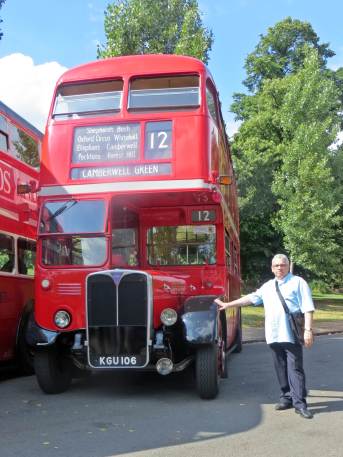My teenage years were spent in Kingston-upon-Thames, where my father was minister of the Methodist Church in the town. I don’t often go back to Kingston; it’s a nice enough place to visit, but when we were living in North London it was a bit of a trek.

Pleased with this photo, taken from one of the little bridges that crosses the stream that runs through the plantation. It’s actually a panoramic composite of 4 separate photos.
So Sunday was a bit of a trip down memory lane. My parents were staying in a hotel in Richmond. “We’re free on Sunday. We’re going to attend church in Kingston but the rest of the day is free.”
It so happened that I was off on Sunday. “Why don’t we meet you at the church?”
It’s a long time since I’ve been to Kingston Methodist Church. The last time was my sister’s wedding and that was years ago. But a regular Sunday service – that was probably over 30 years ago.
The church has changed – but not that much. It’s still identifiably the same place I attended as a teenager. There were even a few folk in the congregation who remembered me, including my Junior Church teacher Alan (who is still teaching Junior Church). The church is, apparently, doing well.
It had been raining on our journey to Kingston; fortunately by the end of the church service it had started to brighten up. My parents suggested we go to Richmond Park for a bite of lunch at Pembroke Lodge and then a walk round Isabella Plantation.
Now I am no stranger to Richmond Park – I cycled through it enough times when I was a boy – but I don’t remember ever visiting Isabella Plantation. Apparently it’s been recently tidied up, with paths improved, the ponds cleared and most of the rhododendrons – which as rhododendrons do, were threatening to take over the place – removed. I have to say – I found Isabella Plantation absolutely stunning, with the azaleas, in a wide variety of reds, pinks and purples, brilliant in the sun that had now come out to shine. Mary Ann, who loves flowers, was in her element.
That evening, when we got home, I showed Marina (one of our Filipino ‘aunties’) the photos. “Lovely,” she said. “They could only have been made by God.”
“Well, God and the people who bred all those different varieties” I said.
“Yes,” she said, “God and the people.”
Want to see more photos? Here’s a link to a Facebook album here (you don’t have to be a Facebook member to see it).











